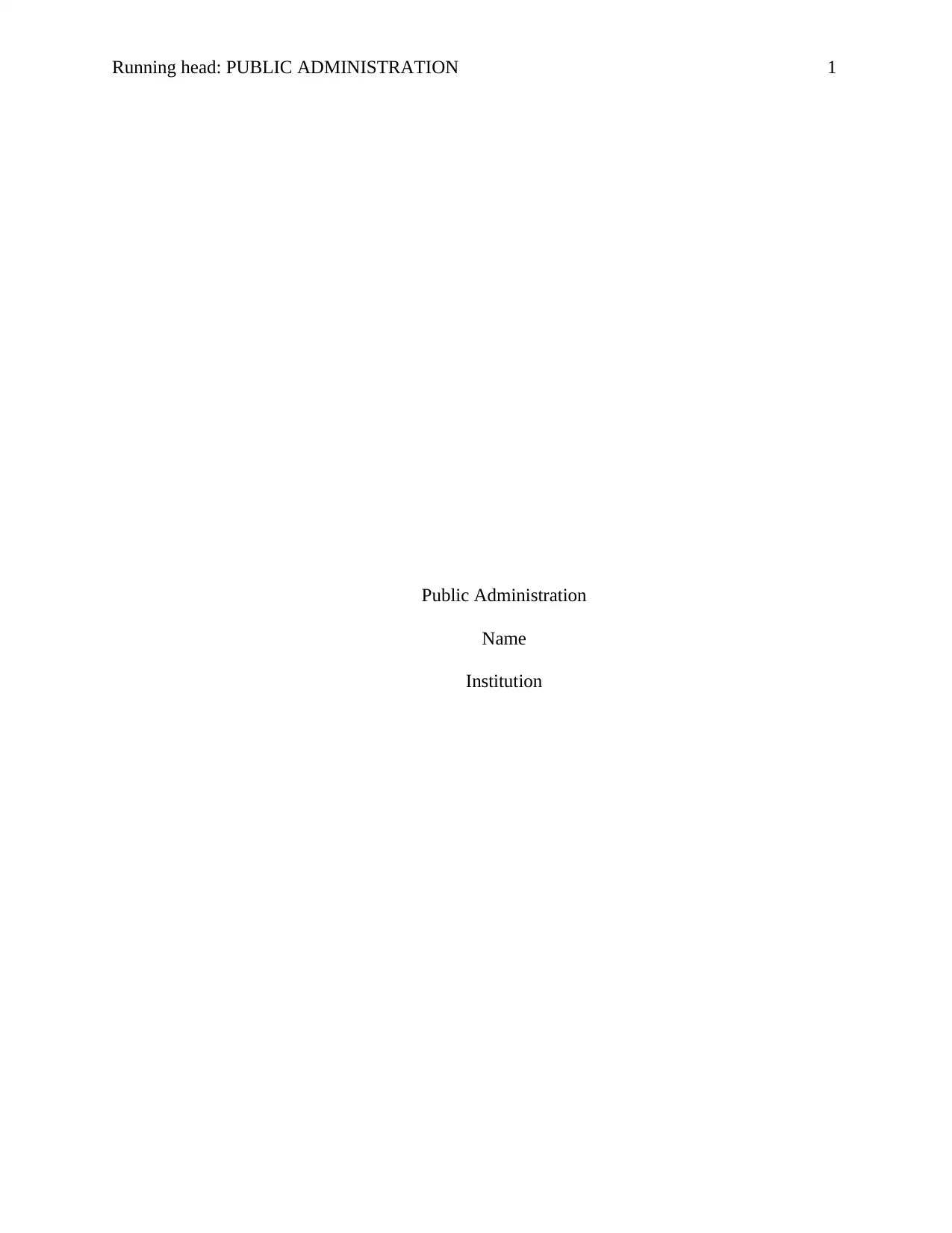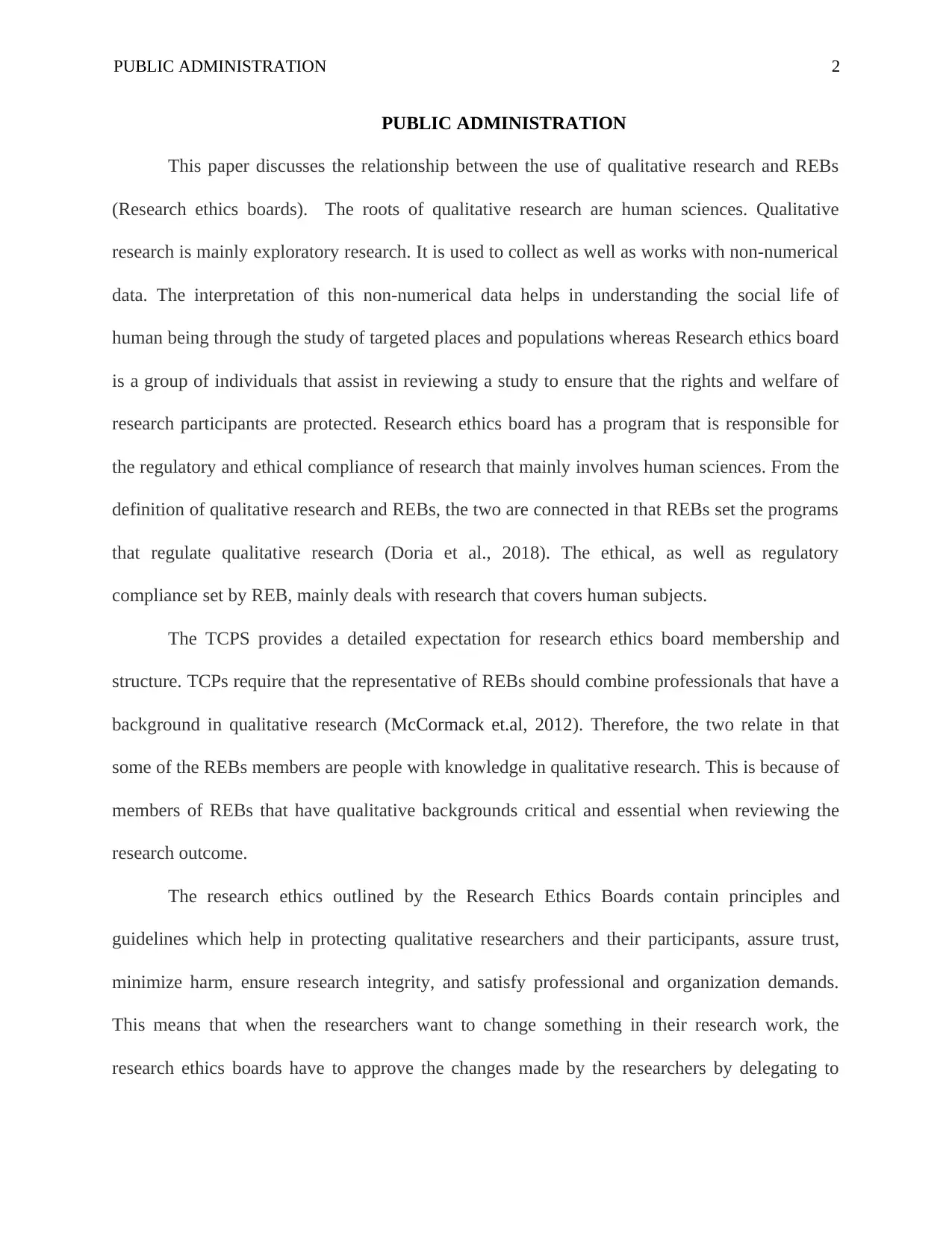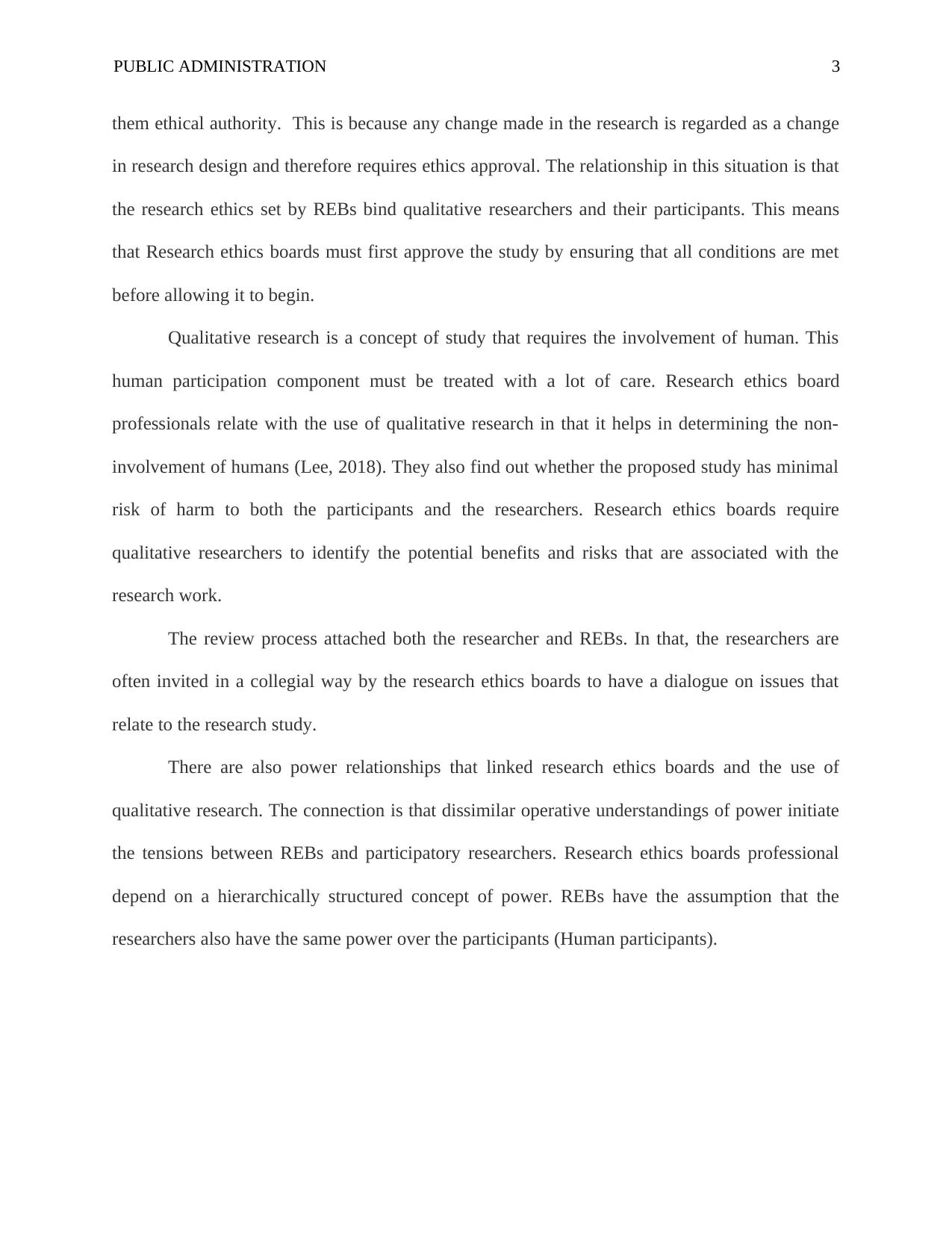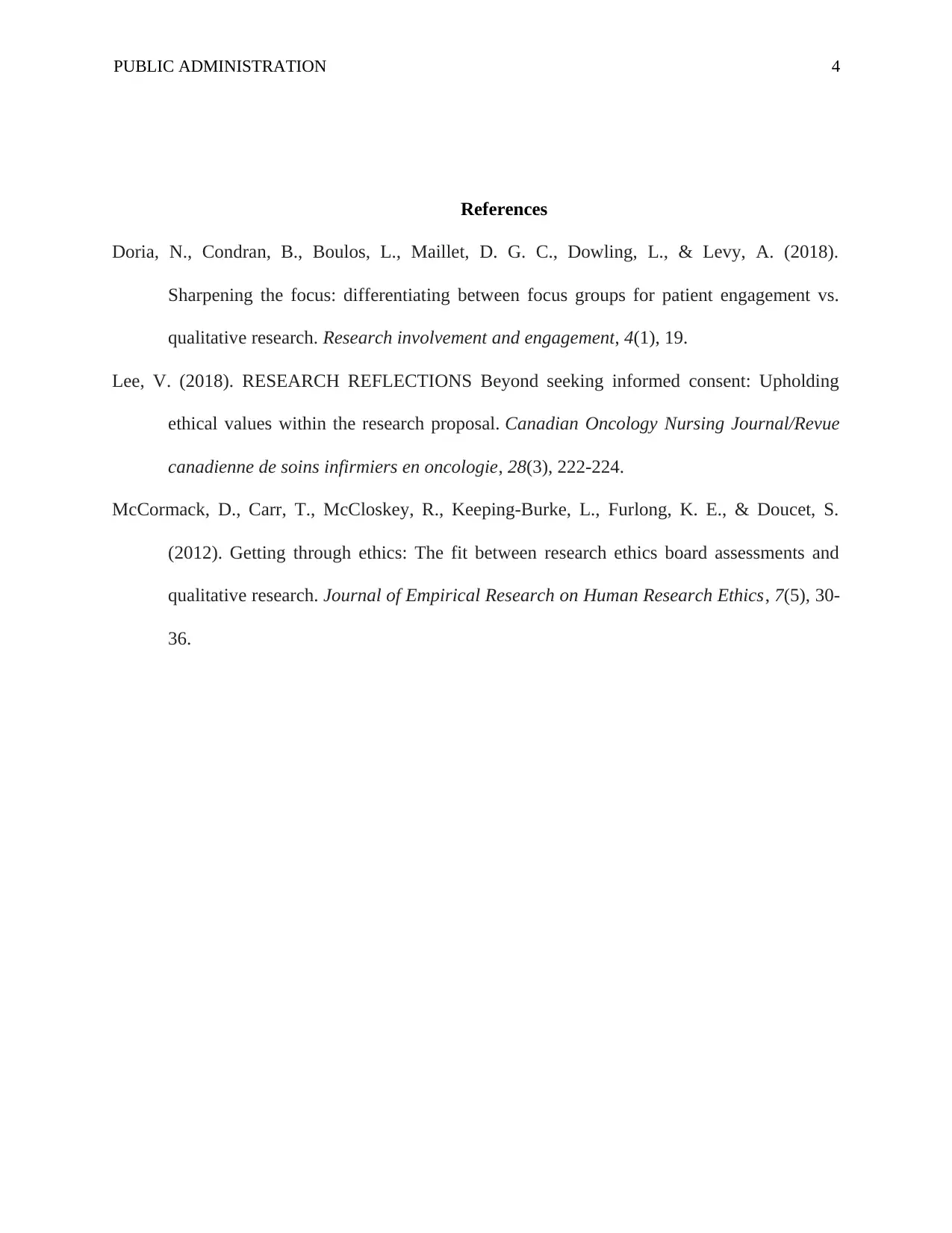The Relationship between Qualitative Research and Research Ethics Boards
VerifiedAdded on 2023/05/29
|4
|778
|317
AI Summary
This paper discusses the relationship between the use of qualitative research and REBs (Research ethics boards) in protecting the rights and welfare of research participants. It explores how REBs set the programs that regulate qualitative research and how the two are connected.
Contribute Materials
Your contribution can guide someone’s learning journey. Share your
documents today.
1 out of 4










![[object Object]](/_next/static/media/star-bottom.7253800d.svg)